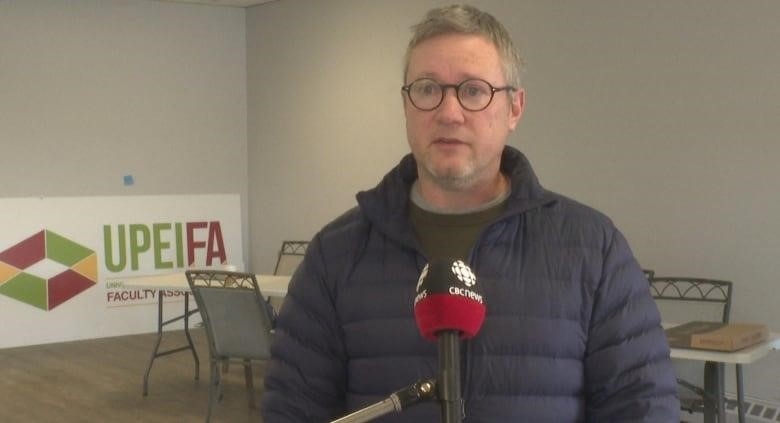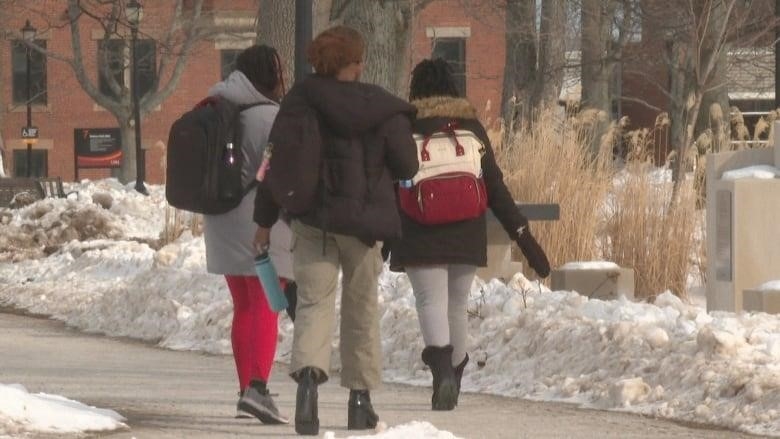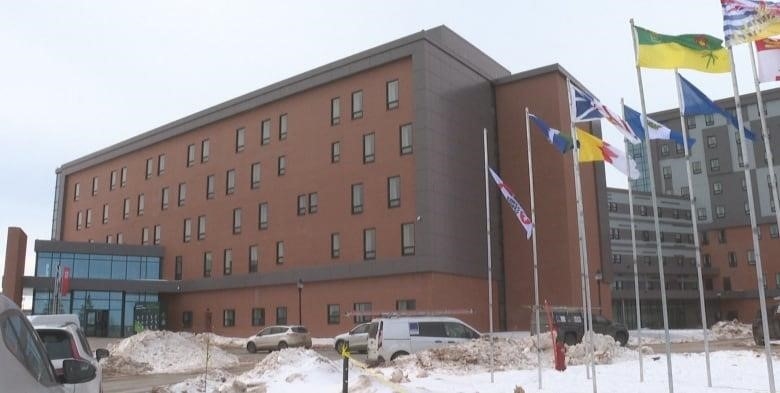In a statement, the university management says, “We welcome the return to bargaining.
The professors at the University of Prince Edward Island have voted to go on strike if they have to.
Eighty-five percent of members took part in a strike vote on Monday and Tuesday, and 83 percent of those people voted in favor of letting the executive committee call a strike if and when it wants to.
In case of a strike, the UPEI Faculty Association has a temporary office set up and ready to go.
Michael Arfken, the president of the association, said that the vote gives the union’s negotiating team a lot of support.
“We have 83% of our members saying that something is wrong and that it’s time for the administration to listen,” he said. “We hope they hear this and are willing to work with us.”
“I’m sad that we had to get to this point before we could have that kind of talk with the boss.” But here we are: Our members have spoken, and we’re very happy with the result of the vote.

Arfken says that a strike couldn’t happen before Saturday, when the Canada Winter Games start. “We’re happy that the Canada Games are happening here, and we won’t do anything to get in the way,” he said.
settlement was “committed” to by the administration
When CBC News asked the UPEI administration for an interview about the labor situation, they sent them a statement instead.
The statement said, “The university welcomes the return to bargaining with the help of mediator Michelle Flaherty, who has said she is willing to help the parties if both parties agree.”
“As we’ve said before, UPEI is still committed to reaching a deal with the UPEI Faculty Association through any means, including interest arbitration, in order to reach a deal that is good for both sides and is in the best interests of our students and the university community before there is a strike.”

The faculty association says it wants to talk again about fair workloads, more full-time faculty, better health and safety, and higher pay for everyone who teaches on campus.
Arfken said that while investments and tuition have gone up, the money hasn’t been spent on things that improve the quality of students’ education.
“For example, the university hasn’t added many more full-time professors, so students don’t have as much access to professors or the courses they want. “So, we want more full-time professors,” he said.

Arfken said that their first idea for wages was to raise them by 30% over three years. But he said it had been a long time since then.
“We’re happy to start making changes to our wage offer.” But since nothing has changed in the other areas, we really don’t have anywhere to go at this point. “We’re willing to get closer to a number with the government, but we also want to see progress on other issues,” he said.
On campus on Wednesday, students who were asked how they felt about what could happen in the next few weeks said they didn’t know. Some worry about missing school if there is a strike, but many also want to show their support for their teachers.
Darcy Ellis, a biology student, said, “It’s good that they’re standing up for what they want, but I hope they go back to the table and find a solution that works for both sides.”
Vinay Maru, a third-year physics student, said he knows that a strike or lockout could cause students to miss a week or so of school, but that in the long run, it’s worth it.
Charlize Sahely said that students have been talking about it. “If the strike does happen, I hope it ends as soon as possible so that all of us students can get back to school,” she said.
Part of a pattern
The university says it has a mediator ready and hopes to come to an agreement that is best for the university community and students.
The spiraling cost of living is a factor, but it’s also clear that faculty are upset that university administrators haven’t reached out to talk with them.—Association of University Teachers in Canada
The Canadian Association of University Teachers said that they see the possible strike at UPEI as part of a pattern that has been developing over the last three years.
The association said in a statement that “an unusually high number of our members are or were in negotiations.” This is partly because contracts were extended until the worst part of the pandemic was over.
“The spiral of inflation that affects everyone is a factor, but it’s clear that people are upset that university administrators haven’t reached out to faculty (and students) to get their input when making plans for the future.”
